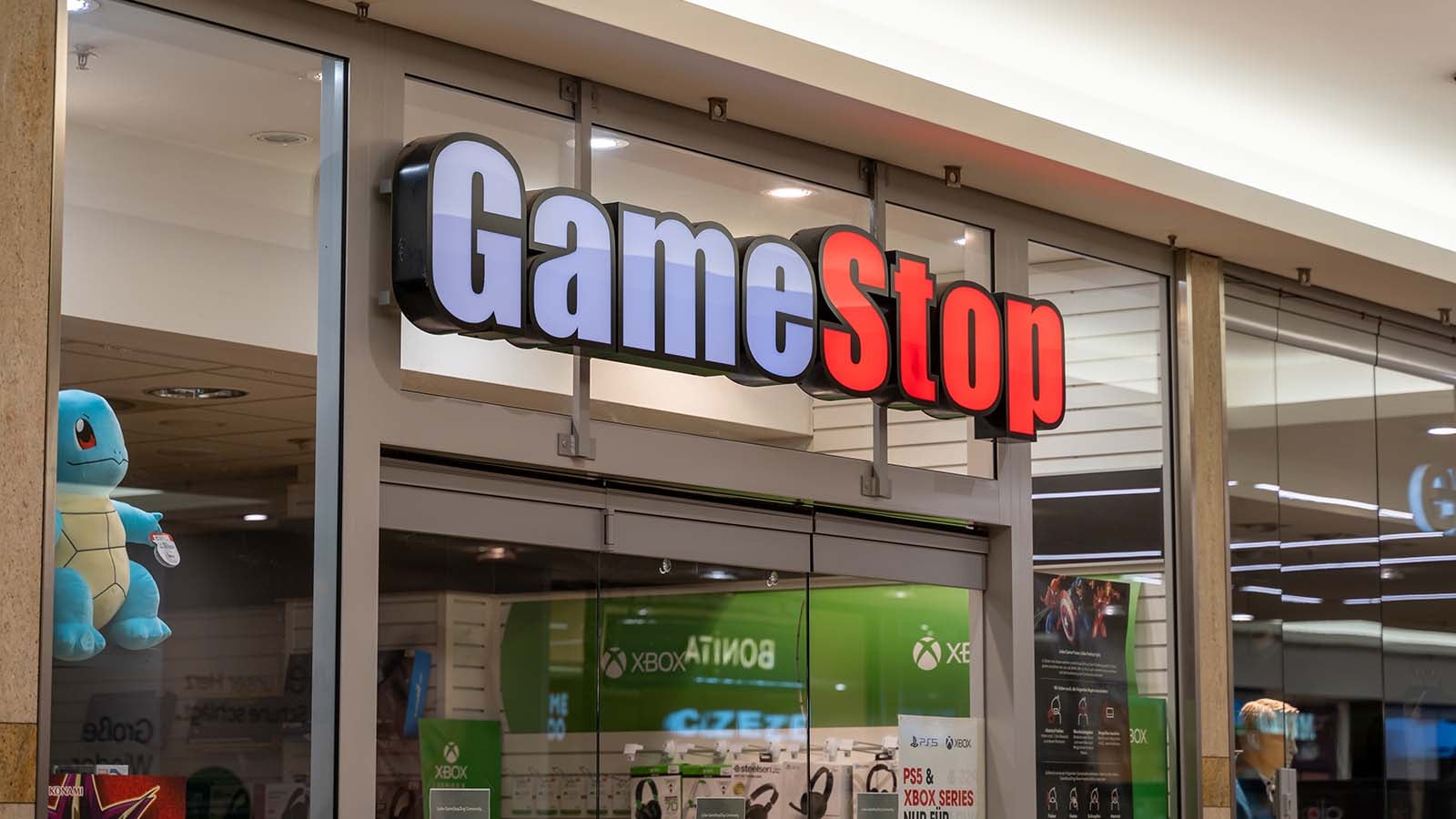A month ago, it appeared as if GameStop (NYSE:GME) was more-than-able to hold on to its post-earnings gains from March, with GME stock holding tight in the low-$20s per share before making its next move higher.
Unfortunately, that’s not how the situation has played out. Shares in the “meme stock king” have in recent weeks coughed back a fair amount of these gains.
If that’s not discouraging enough for those still “long and strong” the stock, this pullback may not be on the verge of ending anytime soon.
GME’s post-spike sell-off may not merely be a case of investors cashing in some of their chips and taking a little risk off the table. Rather, it may be merely the first wave of a continued exodus out of the stock.
Why? It’s possible that investors are catching onto a key bearish takeaway from the video game retailer’s latest strategic move.
| GME | GameStop | $18.35 |
What’s Driving the Recent Sell-Off
At the onset, it made sense why the market reacted positively to GameStop’s last quarterly earnings release. For the quarter ending Dec. 31, 2022, the company reported net income of $48.2 million, a big swing from the $147.5 million net loss reported for Q4 2021.
Management’s updates to guidance also appeared to be positive for the future of GME stock. Namely, the disclosure of plans to put off the build-out of its e-commerce business in favor of maximizing the profitability of its legacy bricks-and-mortar retail business.
To many, this renewed focus on profitability appeared to be something that could help sustain GME’s valuation and pave the way for a continued comeback. However, this was not the view of everyone. Some, such as myself, believed that this plan was bad news for the stock, in two ways.
First, focusing on maximizing profits over growth (via “digital transformation”) called into question GameStop’s inflated valuation. Second, while this plan works well in the near-term, it could turn GME into “the next Blockbuster” (i.e. put it out of business) in the long run. A similar take may become the majority view in the market.
The Next Move for Shares
Admittedly, given how volatile GME stock can be, an unexpected near-term spike is not outside the realm of possibility. For instance, another wave of “short squeeze mania” could help drive a brief, moderate spike in price.
If there are positive macro developments, such as dovish statements from the Federal Reserve, “risk on” sentiment could again temporarily return to the market. This could have an outsized impact on not just GME, but other popular “meme stocks” such as AMC Entertainment (NYSE:AMC).
However, additional temporary spikes will not take GME off a downward trajectory. Shares have trend lower since the height of “meme stock mania” more than two years ago.
In fact, if investors concluding that putting GameStop’s e-commerce pivot on the back burner is bad for future growth, much as I have argued before, a move back to pre-meme prices could speed up.
That said, there may be a silver lining. If GME gets back or near pre-meme prices, it could again become a buy. Mostly, because a Blockbuster-esque “game over” moment is not necessarily inevitable.
Bottom Line
If investors lose faith in the “digital transformation” bull case for GameStop, and shares tumble down to the single digits, GameStop could become the value stock it once was. That was back when investors like Michael Burry, not meme traders on Reddit, were its biggest fans.
If the company decides not to move out of a business that’s in terminal decline, at a low enough price, GME could be profitable as a “cigar butt” style investment.
Between now and when its business is no longer viable, GameStop could essentially liquidate itself.
First, by distributing its $1.4 billion war chest as a special dividend. Then by returning any additional positive cash flow to investors via dividends and share repurchases. The sum of these amounts could potentially produce a worthwhile total return.
But until GME stock gets near “cigar butt” prices, consider it best to keep staying away.
On the date of publication, Thomas Niel did not hold (either directly or indirectly) any positions in the securities mentioned in this article. The opinions expressed in this article are those of the writer, subject to the InvestorPlace.com Publishing Guidelines.
